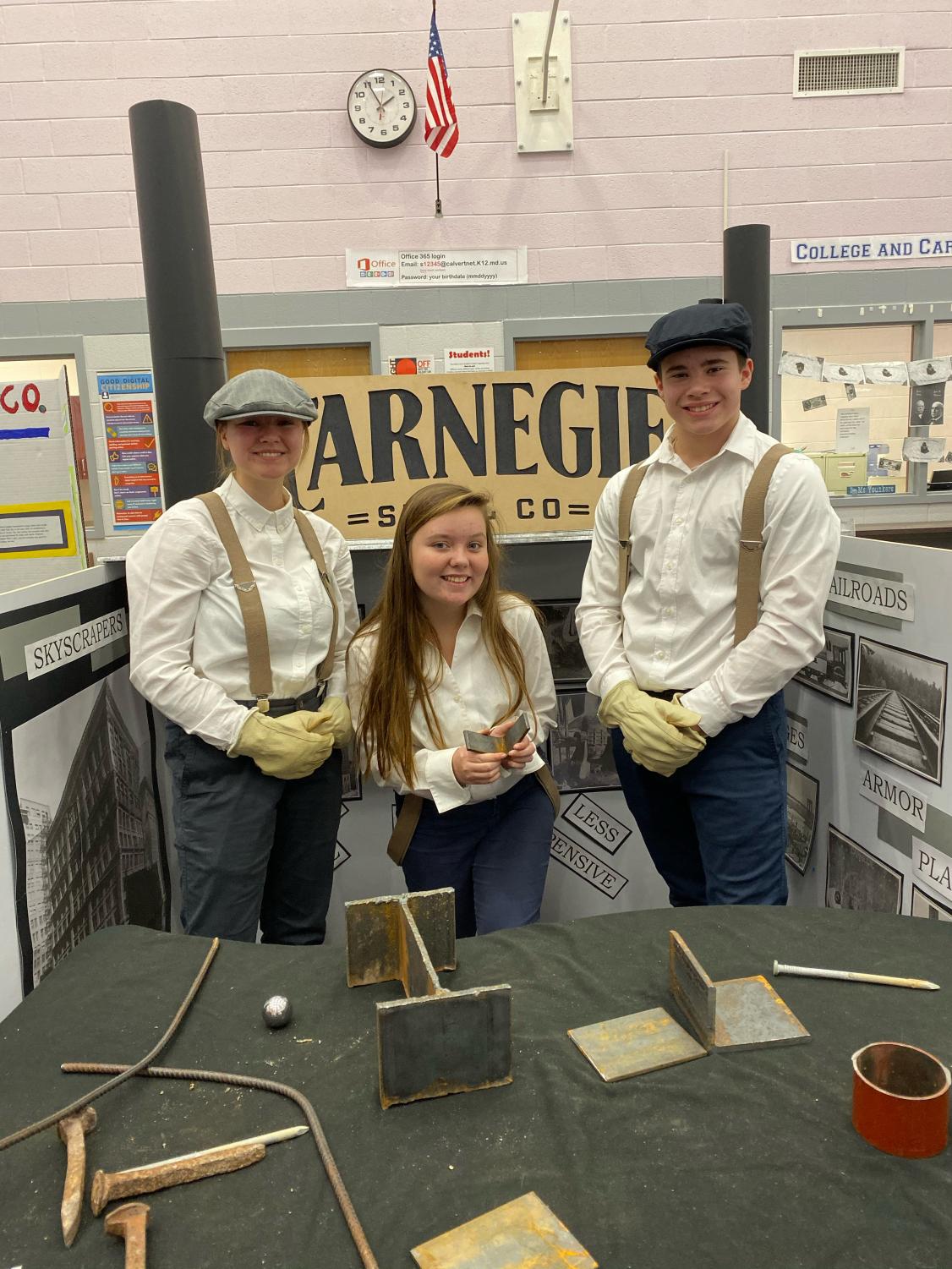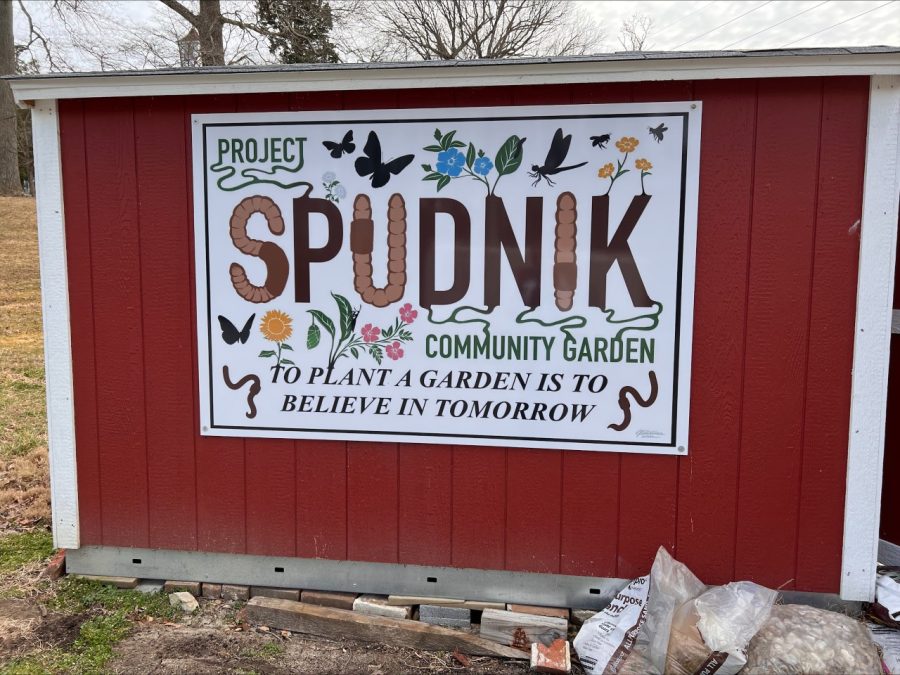Project Spudnik is Out of This World
March 21, 2022
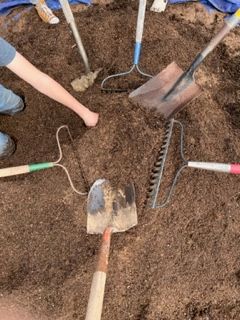
With that deep, soothing voice and facial features that fit the Golden Ratio like a glove, Matt Damon is undoubtedly an inspiration to us all — regardless of if we consciously recognize it or not. In Damon’s 2015 project, The Martian, the sci-fi phenomenon took the world by storm, grossing $630.2 million worldwide and earning the title of Fox’s highest-grossing film of the year. But what Fox, Matt Damon, director Ridley Scott, or author Andy Weir will never know, though, is that their collaborative masterpiece inspired something worth more than money and an Academy Awards nomination combined: They inspired Calvert County’s local Project Spudnik.
What is Spudnik?
Founded in 2016 by the Munn and Dickson-Burke families, Project Spudnik is a local gardening project with the goal of inspiring a love for gardening and the environment while raising fresh produce for the needy. “We grow food for food banks, mainly the Chesapeake Food Pantry,” explains Ryan Dickson-Burke, Spudnik President. This project is a collaboration between the All-Saints Episcopal Church, the Broadview Baptist Church, and Calvert County Master Gardeners. Together, faith and master gardening knowledge collaborate to grow a plethora of produce; everything from beans, potatoes, eggplants, squash, carrots, herbs, lettuce, broccoli, cantaloupe, blueberries, strawberries, as well as a vast variety of peppers and tomatoes.
As mentioned, this project simulates the plot of The Martian, a movie about a stranded astronaut that must live on Mars as he awaits his rescuers. He is forced to make his own soil, water, and to grow his own potatoes in order to survive. In a similar fashion, project participants grow their own produce as they learn about gardening, provide for those in need, and prepare for the unlikely event that they will be stranded on Mars themselves. Participants meet a few times a month to care for their own produce as they watch their gardens grow. Even more on-brand with its space ambiance, the project’s etymologic roots stem from the name of the first satellite in space: Sputnik. Combined with their convenient involvement with potatoes, it seems as though the “spud” pun was too good to pass up.
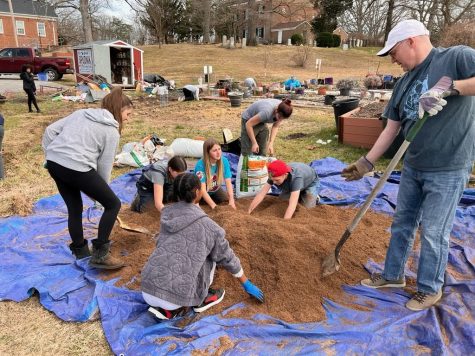
Looking to the Future
“Our current goals are to grow more food and to expand,” says Dickson-Burke. However, he stresses that the lack of consistent attendance continues to be an issue within the project, and fewer participants can hinder the gardening progress. “With Covid,” he continues, “we’ve had trouble keeping membership. We had a lot of people before, but a lot has shifted since then.”
Though Covid-19 took its usual course upon the organization, younger members are looking to the future with impressive long-term goals. “I want to make sure there are still young volunteers that enjoy what we do and are inspired to keep going,” says Sophomore Aeowyn Fields, Vice-President of Spudnik. Once Dickson-Burke graduates this spring, Fields will be a Junior burdened with the responsibility of overseeing the entirety of the project. “We provide a lot of food to different organizations in the county and state, which I’m very proud of, but I’d also love to donate more of what we grow to woman’s shelters, as well as more diverse organizations, so our work benefits more people.”
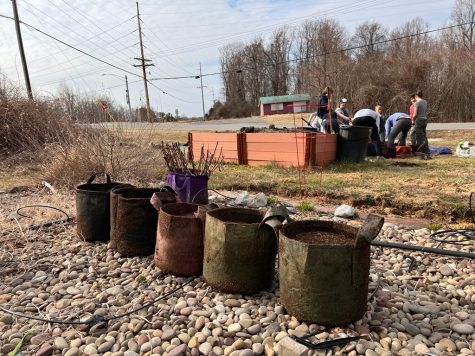
The Epic Highs of Spudnik
A plethora of members avidly express their enjoyment with participating. Volunteers range from all ages, faiths, and backgrounds, yet they all revel in the enjoyment of community service, unity, and the self-actualization of creating something wonderful.
“My favorite memory has to be our harvest dinner,” Fields reminisces. “We got to eat the potatoes and other vegetables we grew with all of the volunteers!” Dickson-Burke also mentions the novelty of eating something you have grown yourself, and how fresh-grown produce undoubtedly tastes better than anything you can buy at a grocery store.
“It was a great way to connect with other people after the quarantine,” says Senior Aiden McPhillips. When they stopped attending the All-Saints Episcopal Church, they felt somewhat disconnected from the faces they were used to seeing so often. However, Spudnik provided a way for McPhillips to continue connecting with members of the community that were important to them. “Interacting and working with people to accomplish a goal was very unifying. It was a good reminder that the world still existed beyond the gloom of isolation.”
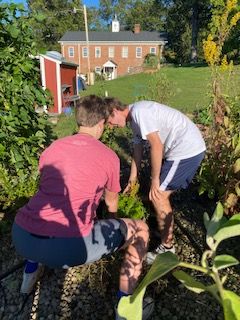
“It’s really fun,” continues Dickson-Burke. “People might be discouraged by the physical labor aspect, but when a lot of people get together, twenty people can get the day’s work done in thirty minutes. You can have a lot of fun working with your friends, too.” Dickson-Burke fondly recalls an instance when he and National Honor Society Vice-President, Nick Farber, didn’t anticipate the spice level of some chili peppers they had grown and later consumed. One thing led to another, and they were sharing an agonizing moment amidst fits of laughter. “It’s a fun memory, us suffering together.” Farber heartily agrees, adding that he “Enjoys bonding with nature, and making a difference, of course.”
Their marvelous work for the community has awarded them grants from various organizations, which typically range from $3,000 — $5,000. These grants are used to further their gardening efforts as they fix mother nature’s natural course on their garden, like removing fallen trees, as well as expanding their growing area. “Next, we’re installing a French drain, which is our next big project.”
“We went to a Ravens game and were awarded an Honor Row,” Dickson-Burke adds. The Ravens’ Honor Row program “salutes youth groups who provide outstanding service to our communities,” notes the Ravens’ website. To be awarded this honor is a prestigious marker of the extent of Spudnik’s service to our community.
“Anyone is welcome,” Dickson-Burke concludes. Whether you need service hours to graduate, projects to complete for organizations like Key Club and National Honor Society, wish to partake of their deliciously catered Subway, or have the itching desire to serve the community, Project Spudnik is the way: for to plant a garden is to believe in a tomorrow.
